AMD's Fusion A8-3850 APU operates with a 29x multiplier that cannot
be changed, so PCSTATS set about overclocking the processor by increasing
motherboard bus speed from it's 100MHz default.
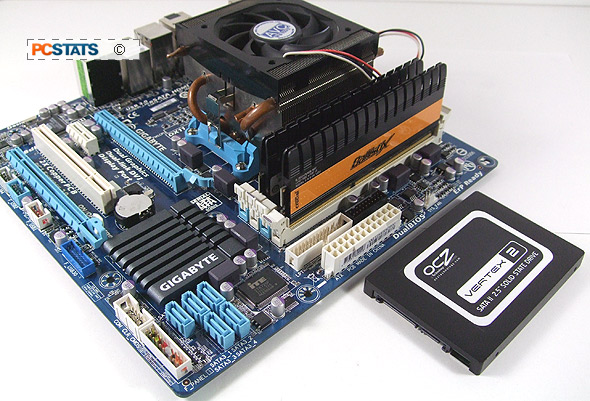
In the BIOS, the Gigabyte GA-A75M-UD2H's bus speed was increased to from
100MHz to 115MHz, then 120MHz.... and at 125MHz the system
crashed. Higher bus speeds were tried, but the best PCSTATS could squeeze from
the 2.9GHz AMD Fusion A8-3850 APU was 3.48GHz (29x multiplier @ 120MHz
motherboard bus speed).
Next up, a look at the BIOS
and our test system specs.
BIOS Controls and
Tweaks
Gigabyte kept the traditional BIOS for the GA-A75M-UD2H motherboard. The main
overclocking controls for adjusting the CPU multiplier (and BCLK frequency) are
found in the MB Intelligent Tweaker section.
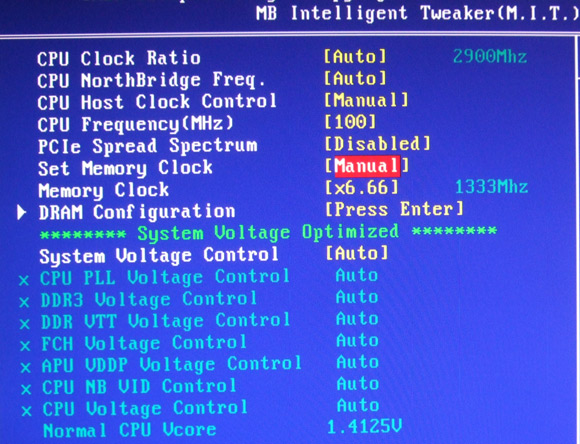
The processors' IGP can be
overclocked and tweaked to your hearts content, though in reality the best
performance gains will come from dropping in a discreet videocard.
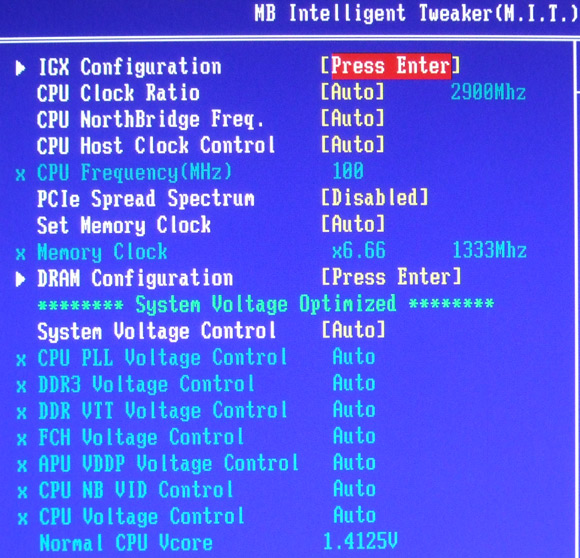
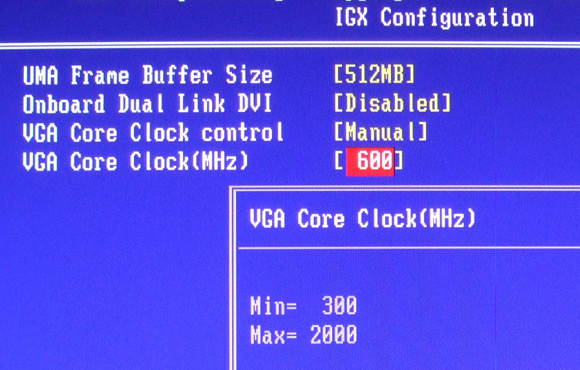
VGA clock speed
can be adjusted if you'd like to try you hand at a little IGP overclocking.
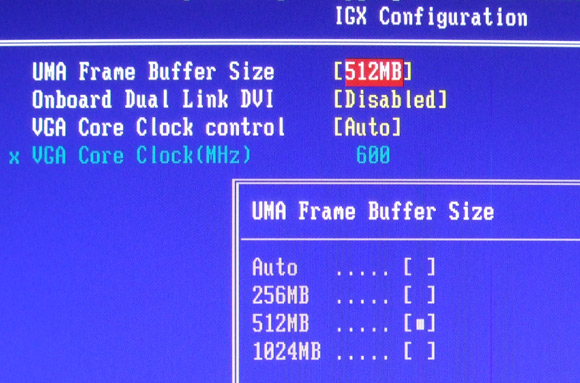
The amount of
memory allocated away from the system can also be controlled. The default is
512MB. The BIOS has extensive memory control options, timings can be set down to
the individual clocks cycle, per channel.
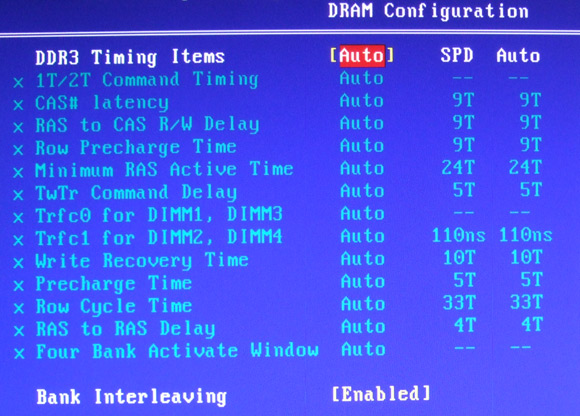
With the BIOS covered, let's
move onto overclocking and the PCSTATS motherboard benchmark suite.
Test System Specs
PCSTATS has relied on Crucial memory for its servers for years, so
it was only logical to install 4GB's of Crucial Ballistix DDR3-1600 8-8-8-24
memory into the Gigabyte GA-A75M-UD2H motherboard test system. The storage
device is super quick OCZ Vertex 2 SSD (120GB, SATAII). The effect on
system-wide benchmarks is dramatic! Thanks to
AMD, Crucial Memory and OCZ Technology for help
outfitting this test platform.
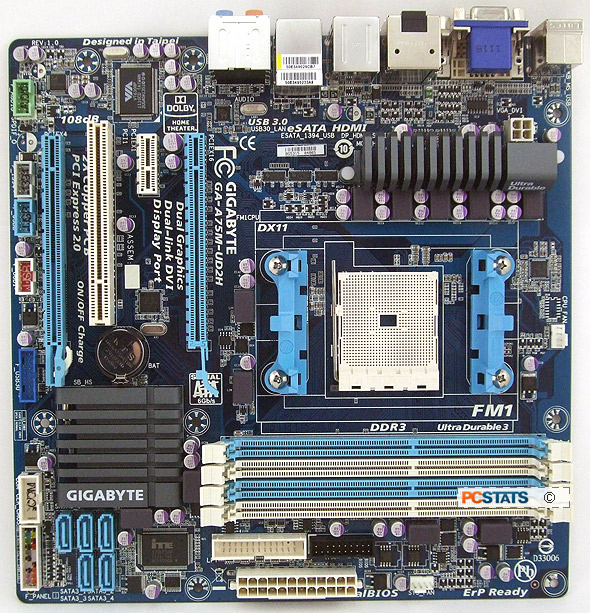
Gigabyte
GA-A75M-UD2H Motherboard
